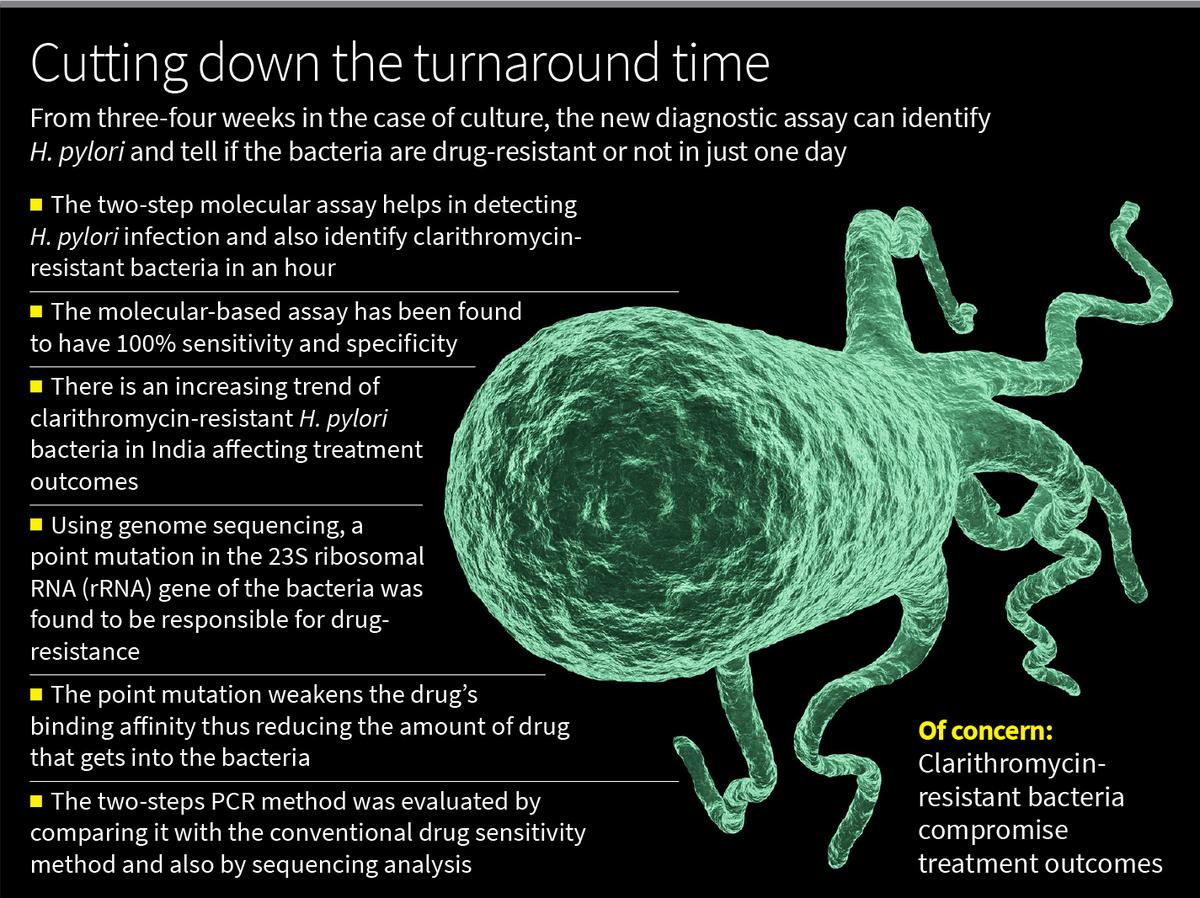Description

Copyright infringement not intended
Picture Courtesy: THE HINDU
Context: Researchers at the National Institute of Cholera and Enteric Diseases (ICMR-NICED) in Kolkata, have developed a two-step PCR-based assay that can detect Helicobacter pylori infection and identify clarithromycin-resistant bacteria in six to seven hours, providing significant improvements over the conventional methods.
Key Highlights
pylori Infection and Drug Resistance
- pylori is a bacterium that infects the stomach lining and is linked to gastrointestinal issues like peptic ulcers and stomach cancer.
- Clarithromycin is an antibiotic commonly used to treat H. pylori infections, but drug-resistant strains in India have raised concerns about its effectiveness.
- The growing prevalence of clarithromycin-resistant H. pylori strains in India poses a significant challenge in managing these infections.
Traditional Detection and Drug Sensitivity Testing
- Traditional H. pylori infection diagnosis and antibiotic sensitivity testing involved time-consuming bacterial culture, taking weeks.
- Delayed diagnosis and sensitivity testing can result in ineffective treatment and antibiotic resistance.
- Faster diagnostic methods are needed to address these challenges and improve patient care.
Development of a PCR-Based Assay
- The National Institute of Cholera and Enteric Diseases (ICMR-NICED) in Kolkata created a two-step PCR-based assay for diagnosing H. pylori infection.
- This assay amplifies a specific DNA segment, targeting a critical mutation linked to clarithromycin resistance.
- The PCR-based assay offers a faster and more accurate alternative to traditional culturing methods, aiding in prompt diagnosis and effective treatment.
- The assay has demonstrated 100% sensitivity and specificity, which means it can accurately and reliably detect H. pylori infections and determine if the bacteria are drug-resistant or drug-sensitive.
Significance of PCR-based assay for Public Health
- This PCR-based assay is a breakthrough in the field of diagnosing H. pylori infections and assessing drug sensitivity.
- It allows for much faster and more accurate identification of drug-resistant strains, enabling healthcare providers to make informed treatment decisions.
- In regions like India, where H. pylori infections are common, and drug resistance is increasing, this development is vital for improving treatment outcomes and preventing complications such as peptic ulcers and stomach cancer.

Conclusion
- The innovative diagnostic method significantly improves the speed and accuracy of diagnosing H. pylori infections and identifying drug-resistant strains. It also sheds light on the genetic basis of resistance, which can inform future treatment strategies. This is a valuable advancement in the field of gastroenterology and public health.
Must Read Articles:
Antibiotics Resistance: https://www.iasgyan.in/daily-current-affairs/antibiotics-resistance
|
PRACTICE QUESTION
Q. How does the overuse and misuse of antibiotics contribute to the development of antibiotic resistance in bacteria, and what strategies can be implemented to combat this growing global health threat?
|







